Child soldiers return to the war they just escaped from as they cannot concieve of any other future.
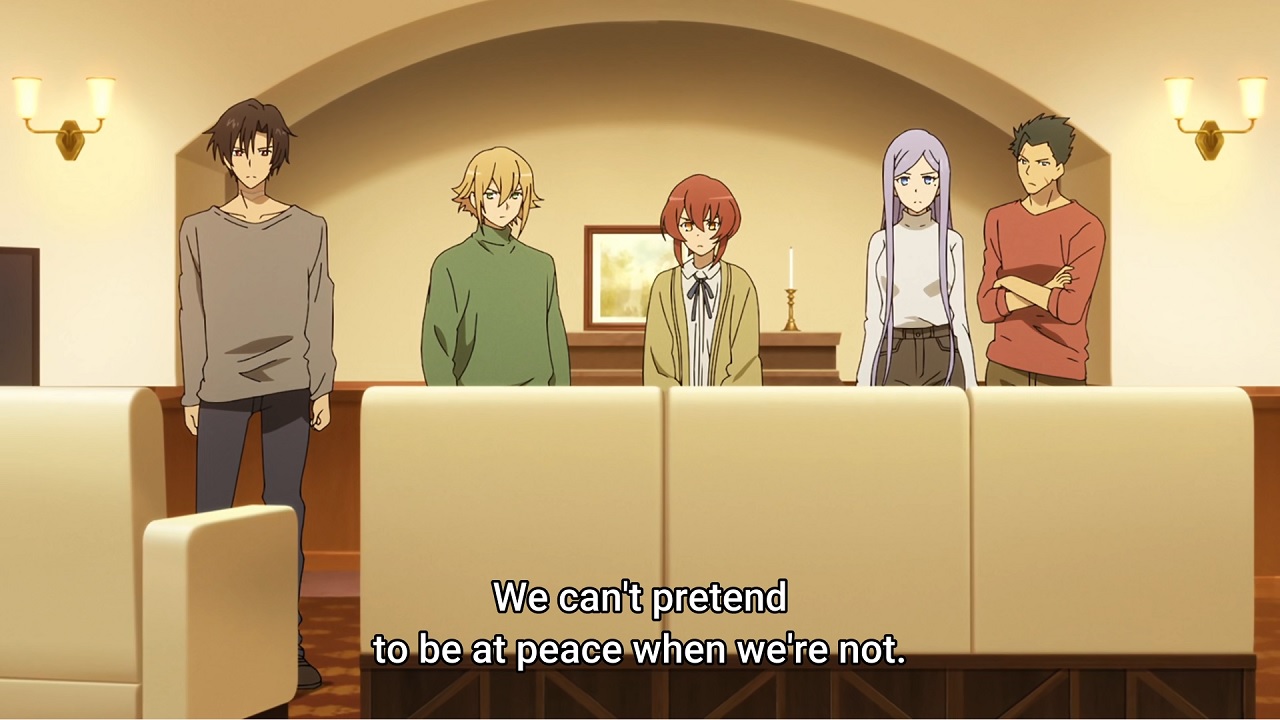
How could they do otherwise? The world ended nine years ago as the Legion, AI driven combat mecha overrun the entire world except for their homeland, the Republic of San Magnolia. Its citizens found refuge in the 85 districts protected by the Gran Mur, but not them, as the original Alba population of the republic decided to kick out everybody non-Alba. Instead they became the 86, no longer deemed human, forced to wage endless war against the Legion, a war that killed their parents, siblings and friends, a war that’s supposed to end in two years as the Legion’s AIs die out, a convenient solution to the problems of the Legion and the 86 both. That’s the reality they faced, but even worse, they knew the Legion wasn’t going to die that easily because they knew it harvested the brains of their killed comrades to command its mecha. So when they were sent on their final mission, a suicide mission, they felt relief to know it was almost over, one last fight and then they could die.
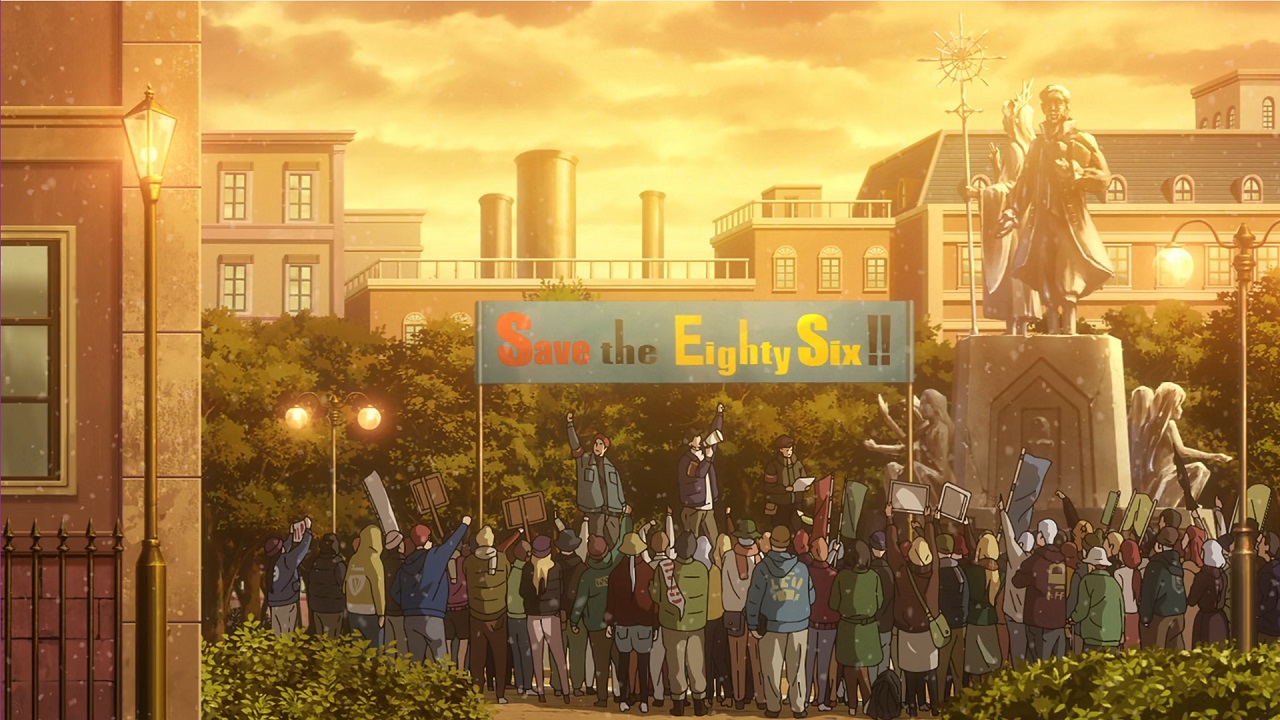
And then they woke up and Shin Nouzen and his four surviving comrades from the Spearhead squadron found themselves in the country that started the war, Giad, free from the burden of duty, free to be teenagers rather than soldiers. Originally 86 was a standalone light novel and this was where the story ended, but because it was so popular it was expanded into a series. The first 86 series adapted that first light novel, but ending just before they found out they’d survived. This second series adapts the next two books in the series, which show what happens after they wake up, with the first two episodes following them in their newfound civilian life before they rejoin the military. Just in time for the next big Legion offensive…
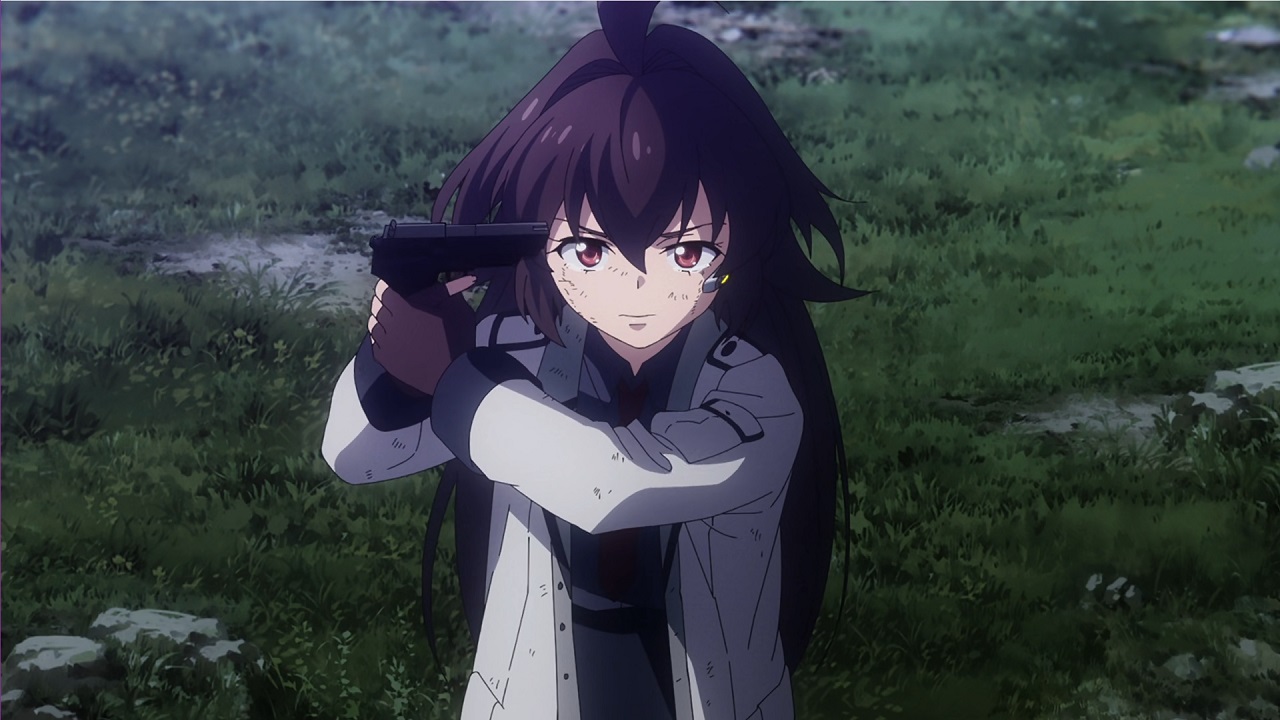
The plot in the first series was largely driven by Shin’s ability to hear the thoughts of the Legion as well as those it killed to ‘crew’ its mecha. Some of those killed with brains intact would not just command a mecha, but entire armies of the Legion, one of which was Shin’s brother, with the fight against him to grant him peace being the climax of the series. This plot is repeated in the new series through the introduction of Frederica, the last surviving member of the old Giad imperial family that started the war ten years ago. Her body guard Kiriya was taken by the Legion the same way Shin’s brother was and the two bond over their shared experiences. Kiriya of course turns out to be the most important piece in the Legion’s offensive and it’s up to the 86 to kill him, deep inside Legion territory. Meanwhile, back in San Magnolia, Spearhead Squadron’s old handler, Lena, their handler, one of the few to take the threat of the Legion seriously or treat 86 as actual humans, is preparing for war. The deaths of her subordinates on a unnecessary suicide mission haunts her and she uses it as motivation to prepare for the final Legion offensive she knows is coming, to save as many people as she can, if she can. As the offensive hits her actions do make a difference. Her story converges again with that of her old squadron in the last two episodes, as they finally meet face to face.
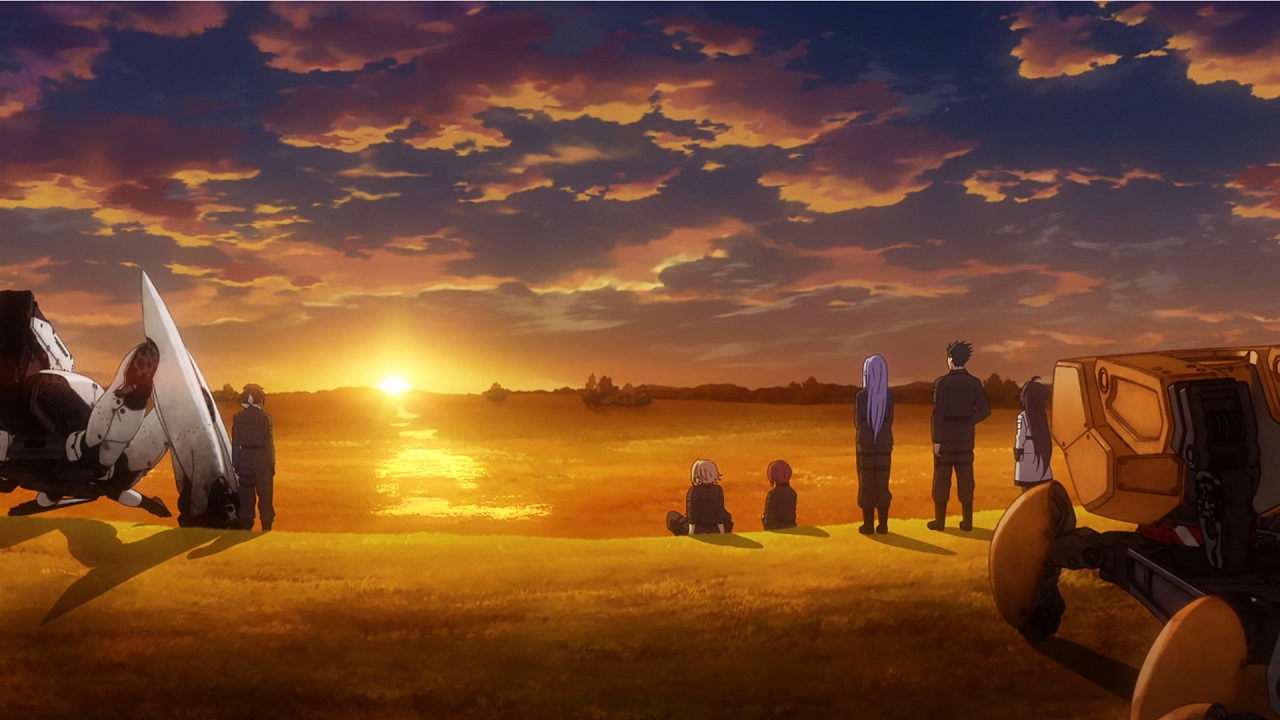
In some ways this entire second series is there to help Shin to get over his PTSD and guilt over killing his brother. At times he comes close to sliding into battlefield madness, only held back by Frederica. The rest of his comrades are less traumatised than him, or are able to handle it better, but it’s telling that they all feel at ease more in the post-apocalyptic ruined towns and landscapes of Legion territory than in the cities of Giad. Even in a much more tolerant country than they left behind their experiences set them apart from ordinary people. Things are just that more simple when it’s just themselves and the wilderness the Legion created The landscapes are certainly gorgeous, beautiful images of ruin and decay, nature reclaiming the wreckage, softening the tragedy that lies behind it.
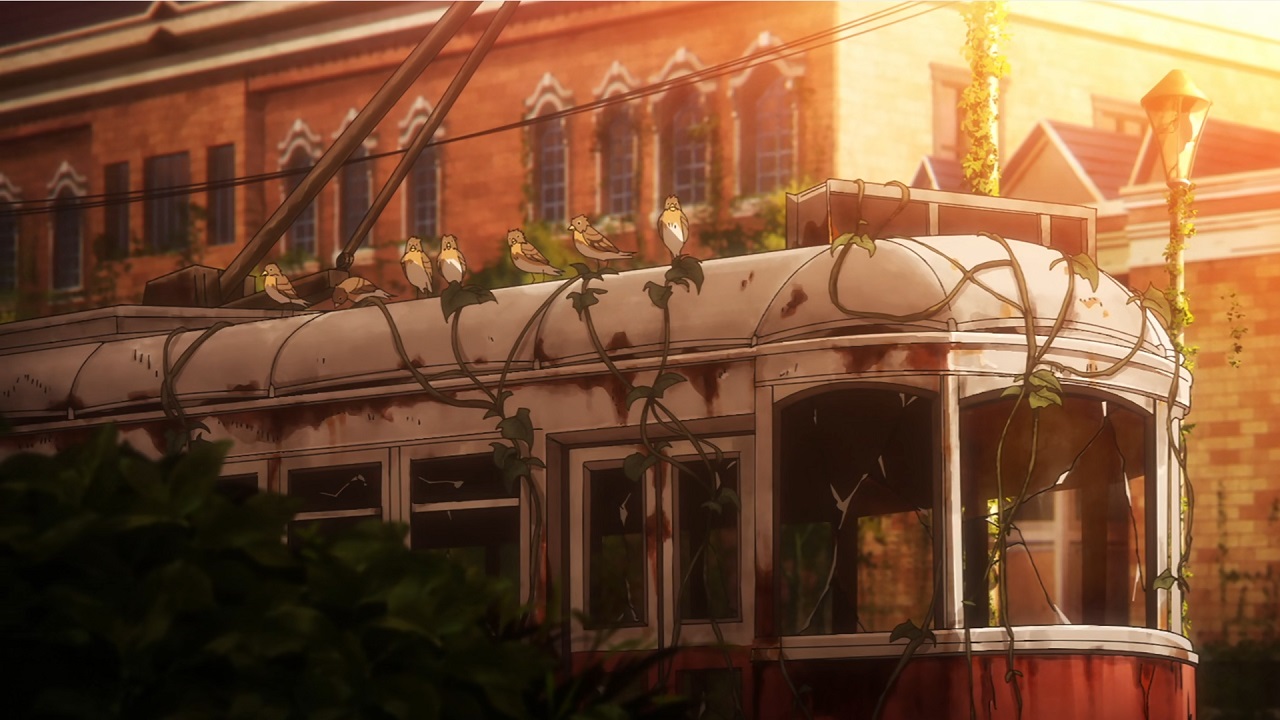
In the end this second season of 86 was not as good as the first, because it lacked the focus and sense of overwhelming dread it had. The story was certainly done no favours by the series disastrous production schema, with weeks and even months between episodes, making it seem much more disjoined than it actually was. Having a similar sort of antagonist as the first series thematically makes sense. Having killed his own brother in season one brought no closure to Shin, but doing the same thing for Frederica, having another person who went through the same journey as him, did. It works well but it still left this second season feel like a rethread of the first one.
No Comments